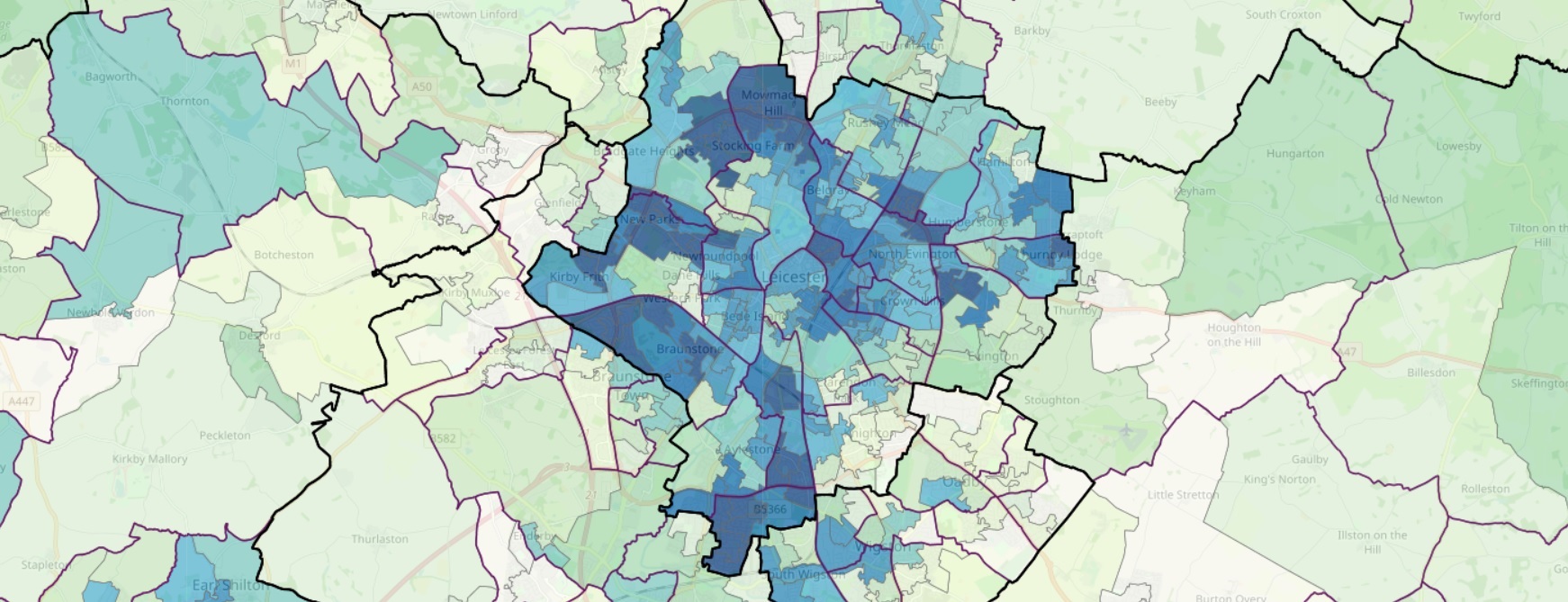In this data brief we provide some background on economic deprivation in Leicester and Nottingham. We look at: (a) measures of deprivation, (b) employment and wages, and (c) skills and type of employment.
Key Findings
- Leicester and Nottingham are two of the most deprived areas in England with high levels of income deprivation and skills deprivation.
- In comparison to other cities, Leicester and Nottingham residents earn relatively low salaries and work in relatively low-skilled occupations.
- In comparison to other cities, Leicester residents have relatively low levels of qualification. Nottingham is closer to the national average.
Key Charts
Our first chart looks at estimated annual salary of full-time workers resident in Leicester and Nottingham and comparator cities in 2020. You can see that Leicester and Nottingham have the lowest salaries compared to the comparator set of cities. Low pay is a key driver of deprivation in the two cities.

Low pay tends to come hand-in-hand with ‘low skilled’ employment. Our second chart looks at the proportion of workers in different standard occupational classification (SOC) groups. To a rough approximation the higher the SOC number the lower the skill level and pay. You can see that Leicester and, to a slightly lower extent, Nottingham have a relatively high proportion of workers in SOC Group 8-9, which are process plant and machine operatives and elementary occupations.

Our final chart looks at qualification levels. Here we see more of a mixed picture. Leicester has a relatively high proportion of working age adults with none or low qualifications (see other and none). We do not see this in Nottingham. In both Leicester and Nottingham the proportion of adults with NVQ4, which is essentially a university degree, is similar to the Great Britain average and other cities. The low skilled work in the respective cities is not necessarily, therefore, being driven by absence of skills, but more the absence of ‘quality jobs’.


